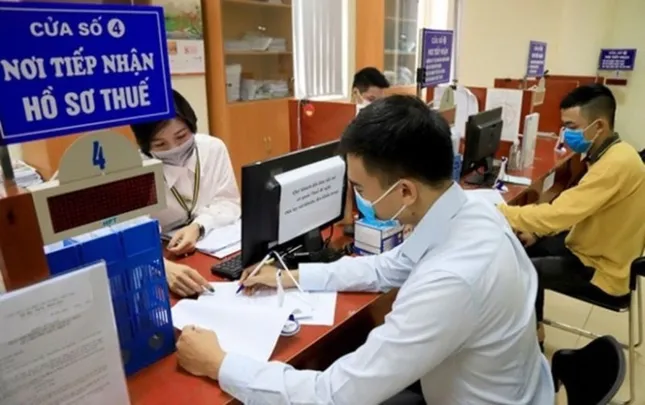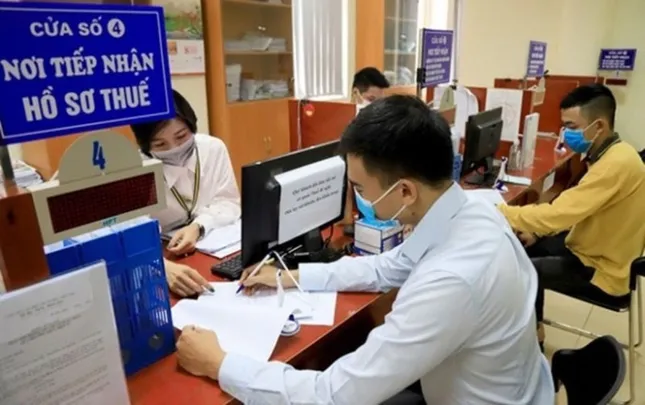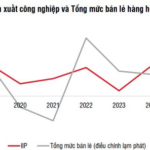Saigon Port Gate Customs Department, Area 4 – Customs Branch of Area II, has recently notified Mr. L.T.B., the legal representative of Thang Loi Moi Import-Export Trading Co., Ltd. (An Nhon Town, Binh Dinh Province), of their decision to impose a temporary exit ban. This action has been taken due to the company’s outstanding late payment fine of VND 2.7 million at Saigon Port Gate Customs, Area 4.
Similarly, the authorities have informed Mr. T.B.D., the legal representative of Thai Ky Thuat Co., Ltd. (District 10, Ho Chi Minh City), about their intention to enforce an exit ban. This is a result of the company’s tax debt of VND 1.8 million.
Mr. D.M., the legal representative of Minh Thanh Consulting and Trading Co., Ltd. (Mo Cay District, Ben Tre Province), has also received notification regarding the impending implementation of an exit ban. His company owes over VND 6.4 million in taxes.
Numerous other directors and legal representatives of businesses have been warned about potential exit bans due to their outstanding tax obligations to the state budget. Interestingly, some of these cases involve relatively small debts ranging from a few million to a few tens of millions of dong.
In the past, such measures were typically reserved for larger tax debts amounting to hundreds of millions or even billions of dong, or for prolonged and challenging collection cases. However, recent trends indicate a tightening of enforcement, with even small debts being addressed if there are signs of tax evasion or non-compliance.
According to the Customs Department, the exit ban is not intended to create difficulties for businesses but is rather the last resort in a series of coercive steps outlined by law. Prior to issuing the exit ban notification, the Customs Authority had sent multiple tax payment reminders and even enforced collection through bank accounts, deductions from other sources of income, or asset freezes.
As per Decree 49 of the Government, which took effect on February 28, individual business owners and household businesses subjected to tax enforcement with tax debts of VND 50 million or more, and overdue for more than 120 days, will face temporary exit bans.

Legal representatives of companies with tax debts in the millions who are no longer operating at their registered addresses will be subject to exit bans.
Legal representatives of companies subjected to tax enforcement with tax debts of VND 500 million or more, overdue for more than 120 days, will face temporary exit bans.
However, for individuals, household business owners, and legal representatives of companies or cooperatives with small tax debts in the range of a few million dong, the exit ban notifications are primarily issued when they are no longer operating at their registered addresses and have overdue tax payments as per regulations.
“After 30 days from the date of notification by the tax authority about the impending exit ban, if the tax obligations are not fulfilled, the Customs Authority will officially send a request to the Ministry of Public Security to impose the exit ban,” the Customs Department stated.
Attorney Le Thi Thanh Ha from the Hanoi Bar Association commented that the use of exit bans sends a strong message about the government’s commitment to cracking down on tax evasion and non-compliance. In the past, businesses could delay or find ways to postpone their obligations, but now, the risks for individuals serving as legal representatives have significantly increased.
However, Ms. Ha also cautioned that applying exit bans for small debts should be carefully considered to ensure proportionality and avoid any negative impact on the business environment. With rising tax debts, this measure is seen as a strong deterrent, especially for “ghost” companies or those suspected of being set up to evade taxes.
In the coming time, customs authorities in major cities like Ho Chi Minh City, Haiphong, and Hanoi plan to continue reviewing and expanding the list of exit bans for representatives of non-compliant businesses. In addition to administrative measures, customs authorities are also coordinating with the police to criminally prosecute cases involving organized tax fraud.
Shark Binh: Decades of Informal Transactions: A Challenge for Vietnam to Embrace a Culture of Proper Taxation
“A thought-provoking insight from Mr. Nguyen Hoa Binh (Shark Binh) on the topic of tax contributions by business households and the strategies to ensure a level playing field for domestic enterprises in the face of competition from cross-border e-commerce giants.”
The Tax Authority Warns Against the Practice of “Cash-Only” Businesses: A Red Flag for Potential Legal Violations.
“The practice of displaying signs that say ‘cash only’ or providing vague transfer instructions such as ‘repaying borrowed money’, ‘coffee money’, or ‘delivery fee’ can create challenges for authorities in verifying revenue and assessing accurate tax liabilities. While businesses may engage in this behavior to potentially reduce their tax obligations, it can also raise suspicions of intentional revenue concealment.”





















